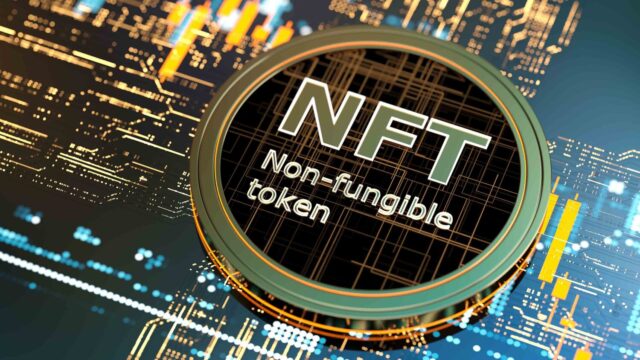
In the ever-evolving landscape of digital content creation, monetization strategies continue to shape the way creators earn income and engage with their audiences. While platforms like Netflix, Hulu, and Disney+ have gained substantial ground, YouTube remains a juggernaut in the realm of user-generated content.
Navigating YouTube in the era of streaming giants demands strategic adaptation. AIR Media Tech, a pioneering force in digital innovation, understands the significance of this transitional period. This article explores some of the most exciting trends in monetization, including Non-Fungible Tokens (NFTs), virtual goods, and more.
Non-Fungible Tokens (NFTs)

NFTs have taken the digital world by storm, revolutionizing how creators monetize their digital assets. NFTs are unique, indivisible tokens that represent ownership or proof of authenticity for digital or physical items. Creators, including artists, musicians, and even gamers, are leveraging NFTs to sell exclusive content, collectibles, and experiences directly to their audience.
NFTs provide a decentralized and transparent way for creators to monetize their work, as each transaction is recorded on a blockchain. This not only adds a layer of authenticity but also allows creators to receive a share of future sales, providing an ongoing revenue stream.
Virtual Goods and In-App Purchases
Virtual goods and in-app purchases have long been popular in gaming, but they are now expanding into other content realms.
Creators can offer virtual goods such as stickers, filters, or exclusive digital items within their content. These goods enhance the viewer experience and provide a direct way for audiences to support their favorite creators.
In-app purchases go beyond gaming apps, with content creators integrating them into various platforms. From exclusive content access to personalized digital experiences, in-app purchases allow creators to offer value-added content while generating revenue.
Subscription Models and Memberships
Subscription models have become a staple for many content creators, offering a steady and predictable income. Platforms like Patreon and YouTube Memberships enable creators to provide exclusive content, perks, and a sense of community to paying subscribers.
Memberships often include early access to content, behind-the-scenes insights, or even personalized interactions with the creator. This model fosters a direct connection between creators and their most dedicated fans, creating a sustainable revenue stream outside traditional advertising.
Livestream Monetization

Livestreaming has become a dominant form of content consumption, and creators are finding innovative ways to monetize their live content. Virtual gifts, donations, and super chats allow viewers to support creators in real-time during livestreams.
Additionally, platforms like Twitch and YouTube offer subscription options for livestreamers, providing subscribers with exclusive emotes, badges, and other perks. Collaborations with brands and sponsored content during live sessions further contribute to the monetization potential of livestreaming.
Audio Content and Podcast Monetization
With the surge in popularity of podcasts and audio content, creators are exploring diverse monetization avenues in this space. From sponsored content and ads within podcasts to premium subscription models for exclusive episodes, creators are finding ways to turn their audio content into a sustainable source of income.
Innovative platforms also allow listeners to support their favorite podcasts directly through donations or memberships. This direct support model enables creators to generate revenue while maintaining a strong connection with their audience.
Affiliate Marketing and Partnerships

Affiliate marketing remains a robust monetization strategy, with creators promoting products or services and earning a commission for each sale generated through their unique affiliate links. As audiences trust the recommendations of their favorite creators, affiliate marketing provides a win-win scenario for both creators and brands.
Partnerships with brands extend beyond affiliate marketing, with creators collaborating on sponsored content, product placements, and brand integrations. These partnerships offer creators diverse opportunities to monetize their influence and expertise.
Educational Content and Online Courses
Creators with specialized knowledge or skills are increasingly monetizing their expertise through educational content and online courses. Platforms like Teachable, Udemy, and Skillshare allow creators to create and sell courses directly to their audience.
By sharing their knowledge, creators not only provide value to their audience but also establish themselves as experts in their respective fields. The demand for online learning has created a thriving market for educational content, making it a lucrative avenue for monetization.
Hybrid Monetization Strategies

As creators navigate the evolving landscape of monetization, many are adopting hybrid strategies that combine multiple revenue streams. By diversifying their income sources, creators mitigate risks associated with fluctuations in advertising revenue or changes in platform policies.
For example, a creator may combine ad revenue with NFT sales, virtual goods, and a subscription model to create a robust and resilient monetization strategy. This hybrid approach maximizes earning potential while providing a varied and engaging experience for the audience.
Emerging Trends in Monetization: NFTs, Virtual Goods, and More
In today’s ever-changing digital content landscape, creators are exploring innovative ways to monetize their work. Non-fungible tokens (NFTs) have surged to the forefront, allowing creators to sell unique digital or physical items with proof of authenticity via blockchain technology.
Virtual goods and in-app purchases, once primarily associated with gaming, are expanding into various content realms, enhancing the viewer experience and generating revenue. Subscription models and memberships create a steady income source, offering exclusive content and fostering community engagement.
Livestream monetization leverages real-time support from viewers through virtual gifts and subscriptions. Podcasts and audio content thrive through sponsored content and premium subscriptions. Affiliate marketing and partnerships remain strong, and educational content and online courses tap into specialized knowledge.
Hybrid strategies combining multiple revenue streams help creators adapt to a dynamic monetization landscape. These emerging trends redefine how creators connect with their audience and generate income.
Conclusion
The landscape of content creation is witnessing a transformative shift in monetization strategies. Creators are no longer confined to traditional models but are exploring innovative avenues that align with evolving audience preferences.
From NFTs and virtual goods to subscription models and hybrid strategies, the future of monetization is dynamic and full of possibilities. As creators embrace these emerging trends, they not only unlock new revenue streams but also deepen their connection with their audience in the ever-evolving digital ecosystem.









